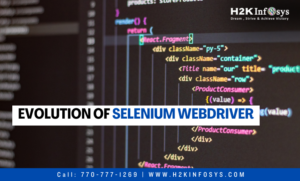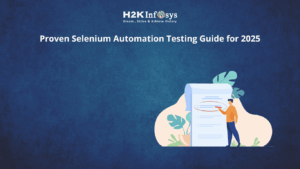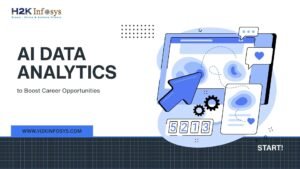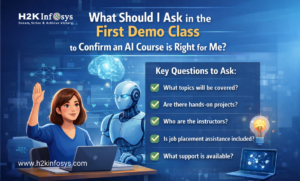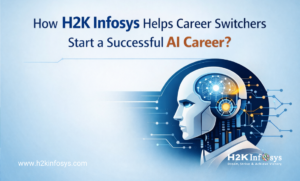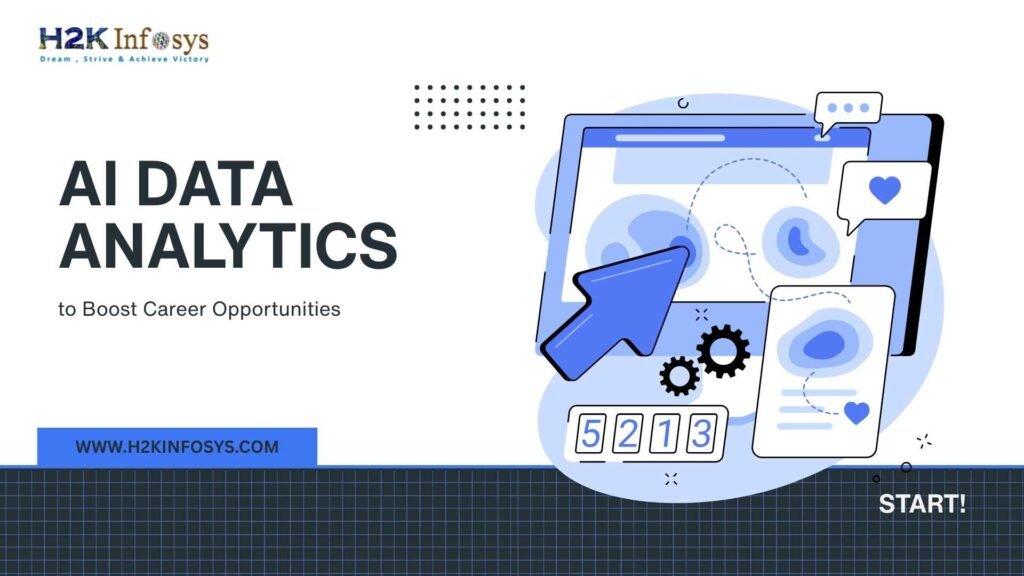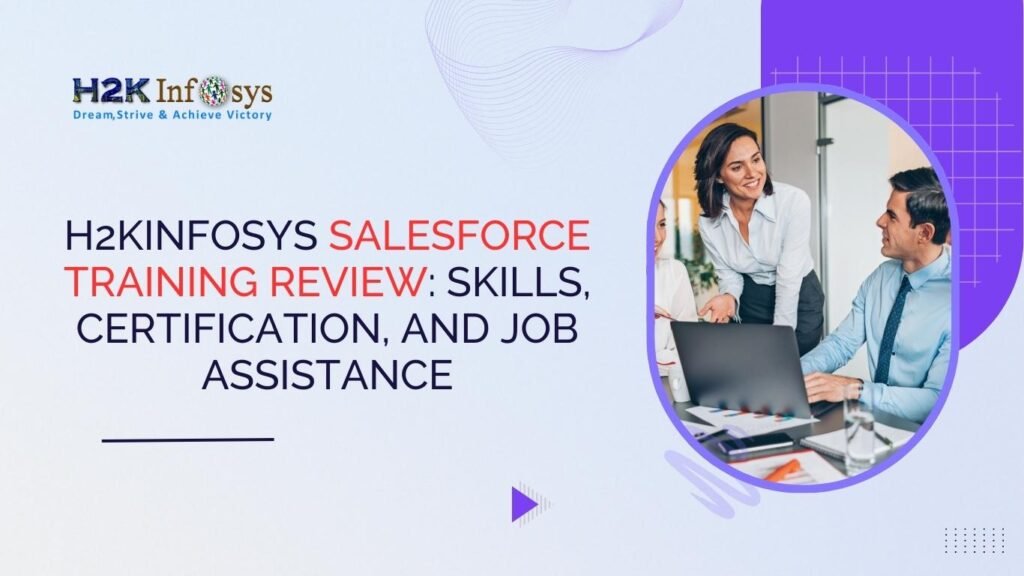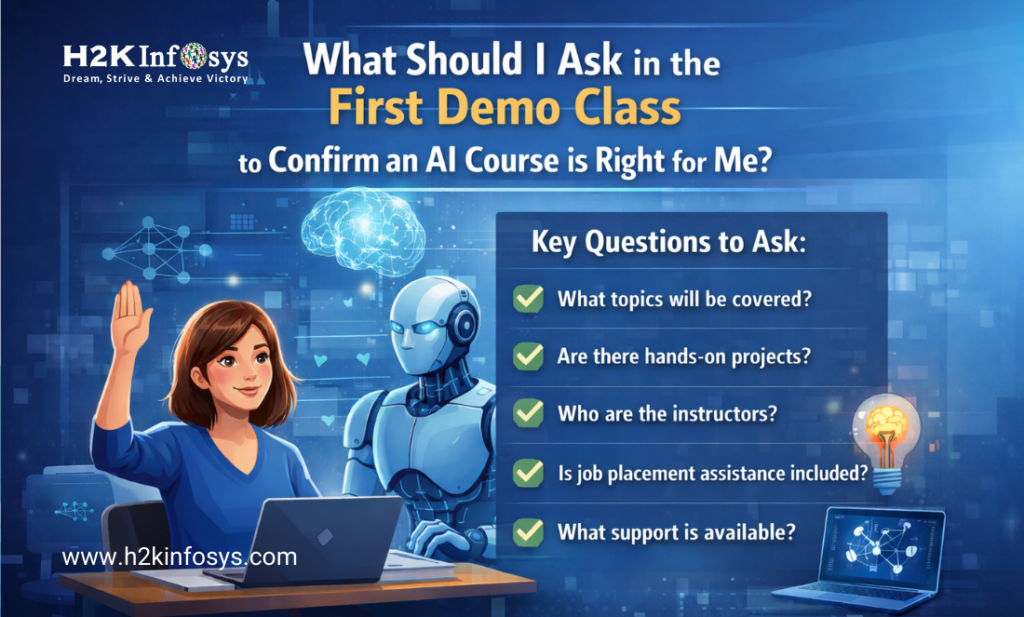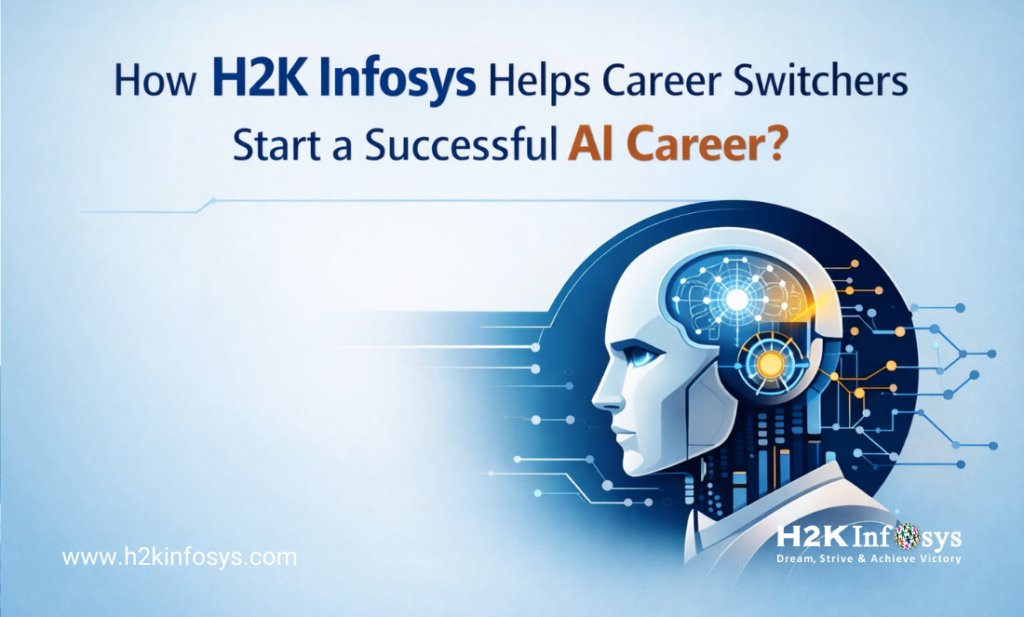The New Era of Smarter Selenium Automation
Automation testing has evolved beyond just clicking buttons and verifying outputs. Today, it’s about intelligence understanding patterns, predicting failures, and adapting in real time. This is where AI insights enter the scene.
Imagine a Selenium framework that doesn’t just execute test cases but learns from previous results, predicts flaky tests, and optimizes scripts automatically. That’s the promise of AI-driven Selenium automation.
In this blog, we’ll explore how AI insights help scale Selenium, why it’s becoming a standard practice in top QA teams, and how you can leverage these skills through a Selenium certification to boost your testing career.
The Evolution of Selenium Automation

Selenium started as a simple browser automation tool, but over time it has become a foundation for enterprise-level testing. From Selenium RC to Selenium 4, the tool has expanded its capabilities for web automation, CI/CD integration, and cross-browser testing.
However, the challenge remains: as applications grow, test cases multiply, and execution time increases, traditional Selenium frameworks struggle to scale.
Enter AI insights a game-changer that brings automation intelligence to test execution, failure analysis, and maintenance.
What Are AI Insights in Selenium Automation?
AI insights refer to data-driven decisions made by analyzing test runs, execution trends, and patterns in Selenium. By using machine learning algorithms, these insights allow your testing system to:
- Predict test failures before execution
- Identify flaky tests automatically
- Recommend optimized test coverage
- Analyze performance trends over time
- Adapt test scripts dynamically
In simple terms, AI insights make Selenium smarter transforming it from a rule-based automation tool into a self-improving testing system.
Why AI Insights Are Crucial for Scaling Selenium Automation
Let’s break down why AI insights are essential when scaling automation testing across teams and environments.
Handling Large Test Suites
As software grows, the number of test cases can reach thousands. Running them all manually or even through CI/CD consumes enormous time and resources.
AI insights can help by:
- Prioritizing critical test cases based on code changes
- Predicting which areas of the application are more likely to fail
- Skipping redundant or low-risk tests
Example:
Google uses AI-based test impact analysis to run only the most relevant Selenium test cases after every code change, reducing test time by 60%.
Detecting Flaky Tests Automatically
Flaky tests tests that fail intermittently are a nightmare for QA engineers. AI models can identify these by studying historical execution data.
They flag inconsistent patterns and help developers focus on the root cause instead of wasting time on false negatives.
Result:
Companies using AI-based test stability scoring report a 40% reduction in test debugging time.
Optimizing Test Maintenance
AI algorithms can auto-detect UI changes (like altered element IDs or layouts) and update Selenium locators without manual intervention.
This is particularly useful when working with dynamic web applications where element properties change frequently.
For Example:
Tools like Testim.io and Mabl use AI-powered smart locators that maintain themselves even when the UI evolves.
Enhancing Cross-Browser Testing
AI insights analyze browser compatibility trends and identify which combinations of browsers and operating systems cause most failures.
This allows testers to focus efforts on critical configurations instead of running full regression across all environments.
Outcome:
Teams report faster execution cycles and optimized use of cloud resources.
Key AI Techniques Powering Selenium Automation
To understand how AI transforms Selenium, let’s look at the key machine learning and analytics techniques used in the process.

Machine Learning-Based Prediction Models
ML models analyze previous test runs to detect correlations between code changes, environments, and test results.
They predict which tests are likely to fail allowing QA teams to plan better and run high-impact cases first.
Natural Language Processing (NLP) for Test Generation
With NLP, testers can create test cases in plain English. AI then translates these into executable Selenium scripts.
Example:
Typing: “Verify that the login button redirects to the dashboard” can auto-generate the corresponding Selenium test code.
Visual AI Testing
Visual AI compares screenshots pixel by pixel and uses pattern recognition to detect subtle UI defects that traditional Selenium assertions may miss.
This reduces false positives and ensures higher visual quality standards.
Self-Healing Locators
One of the most practical AI innovations for Selenium, self-healing locators automatically repair broken element paths when the DOM changes.
Instead of failing, the test adjusts itself based on context clues (like element text or nearby elements).
Real-World Applications of AI in Selenium Automation
E-Commerce Platforms
E-commerce websites frequently update layouts and product flows. AI-driven Selenium frameworks track these UI changes and adjust scripts automatically, ensuring continuous test execution without manual rework.
Case Study:
A leading U.S. retailer reduced test maintenance effort by 70% after integrating AI-based self-healing Selenium tests.
Banking and FinTech Systems
AI insights are vital in financial applications where accuracy and compliance are non-negotiable.
Predictive analytics help prioritize high-risk modules for regression testing, ensuring faster validation before release.
Result:
Banks using AI-driven Selenium reported 50% faster regression cycles and improved defect detection rates.
Healthcare Applications
In healthcare, compliance testing is critical. AI insights analyze patient data flows and identify error-prone modules automatically.
They help ensure better accuracy and consistency in test reporting across environments.
SaaS and Cloud Platforms
With rapid deployment cycles, SaaS companies rely on AI-driven Selenium frameworks to maintain test quality during continuous delivery.
AI assists in dynamic test case generation and predictive failure analysis, enabling faster release cycles.
Hands-On Example: Implementing AI in Selenium Framework
Let’s explore a simplified example of integrating AI insights using Python and Selenium.
from selenium import webdriver
import pandas as pd
from sklearn.ensemble import RandomForestClassifier
# Step 1: Collect Test Execution Data
data = pd.read_csv('test_results.csv')
# Step 2: Prepare Data for Model
X = data[['execution_time', 'change_frequency', 'previous_failures']]
y = data['test_status']
# Step 3: Train AI Model to Predict Failures
model = RandomForestClassifier()
model.fit(X, y)
# Step 4: Predict Risky Test Cases
predictions = model.predict(X)
data['predicted_status'] = predictions
# Step 5: Run Only High-Risk Tests in Selenium
driver = webdriver.Chrome()
for i, row in data.iterrows():
if row['predicted_status'] == 'Fail':
driver.get(row['test_url'])
print(f"Running high-risk test: {row['test_name']}")
Explanation:
- The model learns from past test data.
- It predicts which cases might fail again.
- Selenium then executes only those tests, saving time and resources.
This approach blends AI insights with Selenium to optimize testing pipelines efficiently.
Benefits of AI Insights in Selenium Automation
| Benefit | Description |
|---|---|
| Speed | AI-driven test selection reduces total execution time significantly. |
| Accuracy | Predictive analytics improve failure detection and reduce false positives. |
| Scalability | Self-healing and adaptive models allow frameworks to scale effortlessly. |
| Cost Efficiency | Optimized test cycles lower infrastructure costs in CI/CD. |
| Quality Improvement | Data-driven decision-making leads to higher product quality and stability. |
Integrating AI Tools with Selenium Framework
There are several tools that integrate seamlessly with Selenium to provide AI capabilities:
| Tool | AI Feature | Integration Benefit |
|---|---|---|
| Applitools Eyes | Visual AI comparison | Detects visual bugs missed by code-based checks |
| Testim.io | Self-healing tests | Auto-maintains scripts for UI changes |
| Mabl | Intelligent test execution | Learns from test history for faster runs |
| LambdaTest Smart UI | AI-based locator correction | Reduces maintenance overhead |
| Functionize | NLP-driven test generation | Converts natural language to test scripts |
These integrations are helping QA teams move toward fully autonomous test ecosystems.
Challenges of Implementing AI in Selenium Automation
While AI brings clear advantages, teams face some challenges:
- Initial setup complexity: Requires historical test data for accurate AI predictions.
- Skill gap: QA professionals need to learn basic AI/ML concepts to interpret model outputs.
- Tool integration: Some organizations face difficulties integrating AI-powered tools with existing Selenium frameworks.
However, these challenges can be overcome through structured training, such as enrolling in a Selenium certification course that covers both automation and AI fundamentals.
The Future: Autonomous Test Intelligence

The future of Selenium lies in complete test intelligence.
With AI insights, testing will evolve from reactive to proactive automation, where systems self-diagnose, self-repair, and continuously improve without human intervention.
Emerging trends include:
- Predictive CI/CD pipelines using AI-based risk scoring
- AI agents that write, update, and validate Selenium tests
- Integration of generative AI for automated script creation
AI-driven Selenium automation isn’t just a future vision it’s already reshaping the QA landscape today.
Building a Career with AI-Driven Selenium Automation
The combination of Selenium and AI insights is creating new roles such as:
- AI Automation Engineer
- Test Data Scientist
- Automation Architect (AI-Enabled)
Learning how AI transforms Selenium frameworks can give professionals a strong competitive edge.
If you’re aiming to upskill, enrolling in a Selenium course from H2K Infosys can help you master automation frameworks, AI-based testing techniques, and CI/CD integration through hands-on projects.
Key Takeaways
- AI insights make Selenium smarter and scalable.
- They improve efficiency by predicting failures, auto-fixing locators, and prioritizing test cases.
- Tools like Applitools, Testim, and Mabl already apply these AI principles successfully.
- Learning AI-powered Selenium opens lucrative QA career paths.
Conclusion
Artificial Intelligence is not replacing Selenium, it’s amplifying its power.
By integrating AI insights into Selenium, QA teams can achieve faster testing cycles, higher accuracy, and effortless scalability.
Take the next step in your QA career Enroll in H2K Infosys’ Selenium course today and master the art of AI-driven automation.



